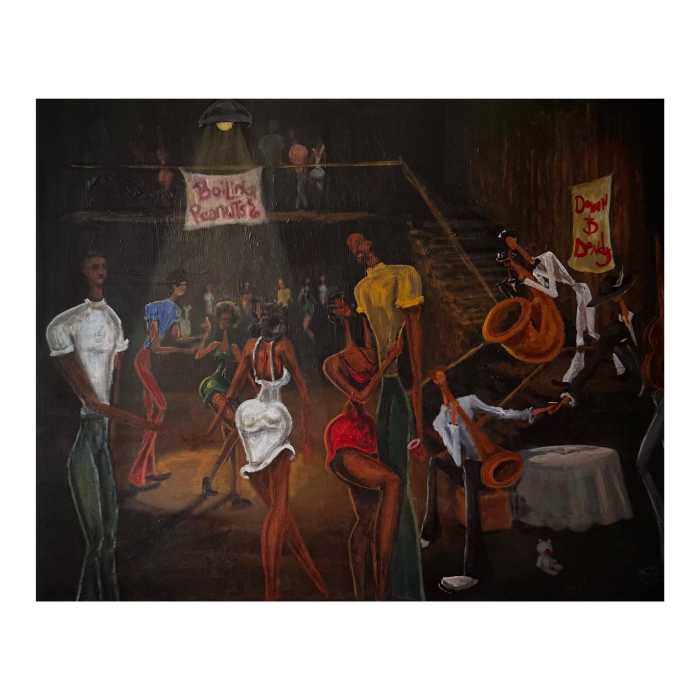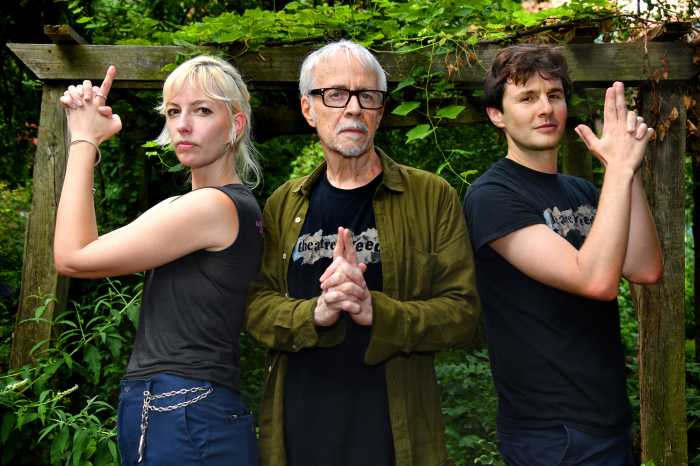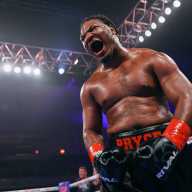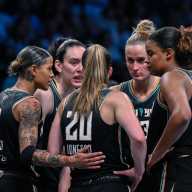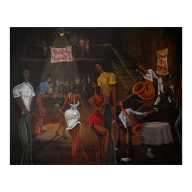By JERRY TALLMER
So the world didn’t stop, it just seemed to, as the night wore on and on and the much-predicted bad news piled tediously up and up.
At least the guy with the baseball bat — the racist bruiser from Buffalo — got slapped down. And that hot-to-trot, sweet-faced nut case down in Delaware. And that frozen-faced, semi-bearded Cro-Magnon up in Alaska. And those rich-bitch millionaire (billionaire?) ladies out West who cold-shouldered everybody but still couldn’t buy their ways, snoot their ways, into power.
Does anybody remember dear old (creepy) Everett Dirksen, who used to say: “A million here, a million there, and pretty soon you’re talking about real money”?
Does anybody remember Alf Landon?
Alfred M. Landon was the corn-fed, cornball Republican governor of Kansas who ran for president against Franklin D. Roosevelt in 1936. Alf’s main campaign line was to rail against the Social Security program that, nursed into life by Labor Secretary Frances Perkins and signed into law by F.D.R. in August of 1935, was one of the titanic achievements of the New Deal. (And all these years later, as it happens, that 1935 enactment still helps to keep a roof over the head of the one U.S. citizen I’ve known best and longest in all this world.).
“Let’s kill Social Security!” — sound familiar?
They’ll do just that, the Avengers, if they get half a chance, and now that they’ve taken the House, they have more than half a chance.
Looking at it that way — up front and very personal — November 2, 2010, may well have been, in every evil sense, the most important election of my lifetime.
As a young boy way back in 1932, I’d spent Election Night crying in front of the radio that was conveying the news of poor Mr. Hoover’s defeat by F.D.R. I was crying because Gee Gee was crying, and Gee Gee was crying because in those days, if you were colored, and from below the Mason-Dixon Line — Gee Gee was from North Carolina — you were born knowing in your bones that the Democratic Party of the Solid South was the party of Jim Crow and all the lynchers.
But four years later, in 1936, I’d grown up, had gone from knee-high knickers into long pants as a fervent enthusiast of the New Deal, cheering F.D.R. in Madison Square Garden, as I’ve written here and elsewhere before. But I was nervous as the election closed in.
In those days in this country there was a prestigious weekly magazine called The Literary Digest that for years had hit the nail on the head through its pre-election polling of millions of voters. Now it was predicting a landslide victory for Alf Landon. “As Maine goes,” was how the magazine put it — Maine, the rock-ribbed Republican state — “so goes the nation.”
In those years also — those innocently pre-television years — it was an Election Night ritual in this city for a crowd to pack Times Square just as on New Year’s Eve, but now to watch the state-by-state results as they were projected on the same front of The New York Times building where the ball would drop on New Year’s Eve.
Well, there we were on Election Night 1936, my father and I, my father with a pencil in one hand and a copy of The Literary Digest Poll results in the other, and as each state came in for Roosevelt, one after another after another, my father, thoughtful, mild-mannered Albert F. Tallmer, would make a check mark on the relevant space and shout something like: “Put that in your pipe and smoke it, Literary Digest!” The magazine had polled 10 million people who owned cars and had telephones in the middle of a Great Depression.
In the end, F.D.R. took all but eight of the possible 531 electoral votes, winning all but two of the then 48 states, Maine and Vermont.
“As Maine goes, so goes Vermont” was the wisecrack that flew around the nation, and what also soon went flying was The Literary Digest — right out of business.
The New Deal was here to stay.
I guess that was the most important election that ever was.
In 1940, the year the Republicans made a life-and-death campaign issue of “the third term” — they were against it, as were most of my classmates — I was not yet old enough to vote, but I was old enough to spend all night putting to bed the next morning’s edition of The Dartmouth, the oldest college daily in America, with a six-column banner headline: “ROOSEVELT GETS THIRD TERM.”
It was also the year Adolf Hitler was burning up the world. I guess that was the most important election that ever was.
In 1944 I voted by mail or by proxy or whatever from Guam or Okinawa, I forget which. But of course, with the war going on, that was the most important election that ever was.
In 1948 — oh boy, 1948 — I flirted with being a Democrat for Eisenhower before I came to my senses and decided to vote for nobody. Harry Truman was too inept, Thomas E. Dewey was too smug, and he had that neat, little, super-smug moustache. My father was the only person in the whole United States of America who thought Truman was going to win.
So on the Saturday afternoon or early evening before Election Tuesday, I was driving down with Matthew Rapf from New Haven, where we’d just seen Yale beat Dartmouth, to New York City, where we were going to do some drinking.
I switched on the car’s radio. Dewey was speaking — his last pre-election pitch. And he was so cold, so superior, so anti-human, so hateful, that I now knew what I had to do Tuesday morning. I voted for the begoggled, little guy who, the morning after the voting, would with a broad grin hold up the front page of the Chicago Tribune with the eight-column banner headline: “DEWEY BEATS TRUMAN.”
For sheer pleasure, that had to have been the most important election in the history of the world. I still have a photograph of Truman holding up that newspaper.
In the summer of 1952 I was dozing on a daybed on Fire Island when suddenly I heard coming from a radio I wasn’t listening to some extraordinarily eloquent and intelligent words — more quietly eloquent and intelligent than anything I’d ever heard from the lips of any politician ever before. Who is that? I wondered. It turned out to be some fellow from Illinois named Adlai Stevenson, who quite stole my heart as nobody else in his line of work ever could until a no-less-intelligent-if-angrier Eugene McCarthy suddenly materialized during a Vietnam War 18 years later.
In contrast, Dwight Eisenhower could hardly put six words in the syntactically correct order. “I’m voting for the English sentence,” some noted teacher or critic (maybe Jacques Barzun?) said back there in 1952, and so did I — twice. Both, of course, were the two most important elections in history.
No, no, sorry. Nineteen hundred and sixty, Nixon vs. Kennedy, a changing of the guard and the generations — that was surely the most important election in history…until its dead man arose from the grave and walked again amongst us and actually, in that tumultuous year, 1968, won his long-sought prized key to the White House.
In the summer of 1964 I was in London to look at theater, and spent some several evenings talking politics with a young British newspaper friend named Tom Stoppard, who had thoughts of putting his hands to a play about two minor figures in Shakespeare’s “Hamlet.” Tom and his wife, Jose, were obsessively worried that the United States, that fall, would turn to fascism by electing Barry Goldwater president. We all know how that most crucial election in history turned out. Meanwhile, 15 years later, Britain installed the Iron Maiden, Margaret Thatcher, at 10 Downing Street, for some stony years to come.
I think we can skip the next several boring occasions until we get to the baffling 2004 re-election of George W. Bush, which was surely the most important (negative) turn of events in the whole history of the world.
Until what has happened just now. Because, you see, every election is the most important election in the whole history of the world. As an ancient prophet named Stengel used to say, you could look it up.



